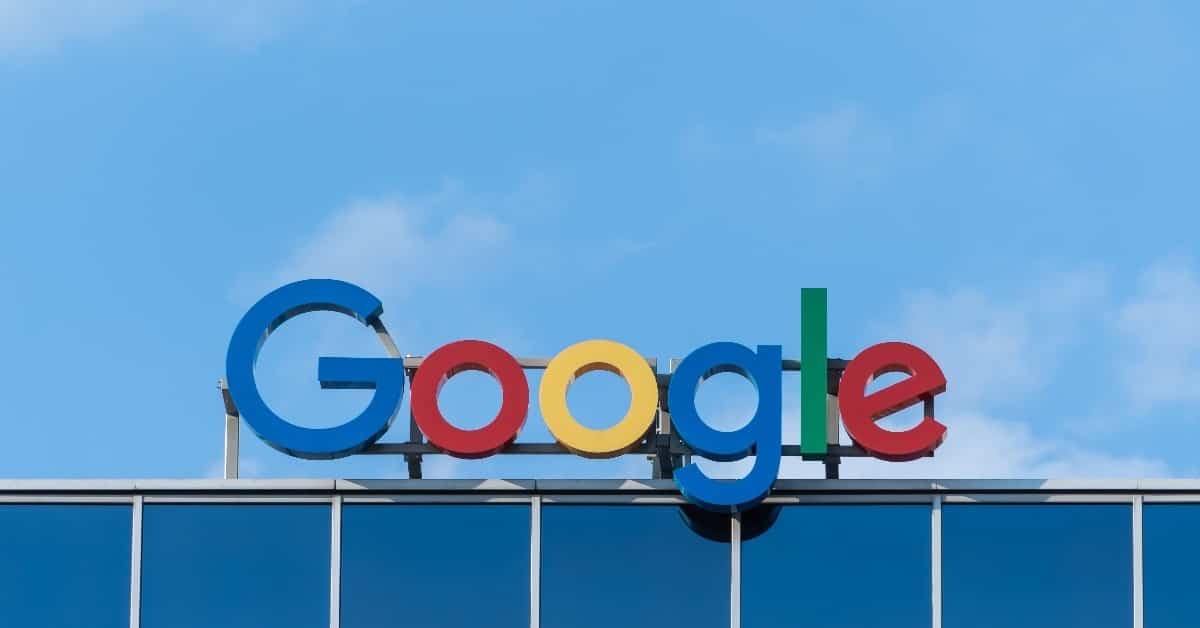I wrote this article in Japanese and translated it into English using ChatGPT. I also used ChatGPT to create the English article title. I did my best to correct any translation mistakes, but please let me know if you find any errors. By the way, I did not use ChatGPT when writing the Japanese article. The entire article was written from scratch by me, Saikawa Goto.
Introduction
Movies and books covered in this article

Three takeaways from this article
- “Google, which had no prospects for profitability even four years after its founding.
- The innocent idealism of the two founders who were indifferent to profitability.
- The struggles of the two people who put Google on track and the author who delved into the depths of Google.
Self-introduction article


Published Kindle books(Free on Kindle Unlimited)
“The genius Einstein: An easy-to-understand book about interesting science advances that is not too simple based on his life and discoveries: Theory of Relativity, Cosmology and Quantum Theory”
“Why is “lack of imagination” called “communication skills”?: Japanese-specific”negative” communication”
The quotes in the article were translated using ChatGPT from Japanese books, and are not direct quotes from the foreign language original books, even if they exist.
What Kind of Company is “Google” that Changed the World? The Story of How They Arrived at Their Current Position through “Innocence” and “Chance”

There are few people who use smartphones or the internet and are not benefiting from Google. Everyone is likely to use services like “Gmail,” “Google Chrome,” “Google Map,” and YouTube, which was also acquired by Google, on a daily basis. If, at this very moment, “the company called Google and all the technology created by Google” were to disappear, society would likely fall into great chaos.

Google is deeply involved in our lives to the extent that if the company and all of its technology were to disappear, society would likely fall into chaos. This book is about the “world-changing” company, and how it has affected the media industry.
The author, Ken Auletta, is a journalist who is well-versed in the field, so much so that he is praised as follow:
No one covers the ongoing media revolution as completely as Ken Auletta does.
This book is about Google, but it also depicts the world that was destroyed by Google’s appearance. It is a work that depicts the “dramatic changes in the world’s media industry” with Google as the center.

By the way, this book was released in Japan in 2010 and in America before that. In other words, it is not a work that touches on the latest information. However, it can be said that this book is closer to a “history book”. It depicts how Google was founded and how it came to its current state, so the fact that it does not contain the latest information is not a disadvantage of this book. I hope you understand this point and pick up the book.
In the Beginning, Google had No Predictions of Potential Sales
Google revolutionized the way the media industry works.

In traditional media, it was important to take viewers to the place where the content is. However, in new media, it is important to deliver content to where viewers are. And viewers exist everywhere on the web.

For those born in the generation where the internet exists from birth, “receiving information to themselves” may seem natural. However, until then, whether it was newspapers, TV, movies, or whatever, it was necessary to “take users to where the content is”. Google has broken this common sense thinking of traditional media in just over a decade since its founding.

Furthermore, one of the new values that Google brought is the idea that “the internet should be free.”
Google has spread the awareness that “information and content on the internet should be free” through its free services. This is something that traditional media is currently struggling to resist. “Companies that could be called the ‘Google Generation’ have grown based on the simple premise that all things digital should be free,” Anderson writes.
What was revolutionary about Google was that “everything is free.” The average user doesn’t have to pay anything to use Google. At least I don’t think I’ve ever paid Google for anything. And yet, Google, which offers everything for free, ultimately earns an enormous amount of advertising revenue. In 2008, its advertising revenue was said to be comparable to the total revenue of the five major TV networks (CBS, NBC, ABC, FOX, CW). It has probably increased significantly since then, as of 2022.

However, no one thought that Google would be able to generate revenue like this, including the two founders. That’s where the amazingness of Google as a company is felt.
In 2002, Google invented a revolutionary advertising method called CPC and started operating it under the name “Adwords”. It had already been 4 years since its founding. In other words, for these 4 years, Google had no “income”. Also, “Adwords” was not created as a last resort. It is surprising that no one thought it would become a pillar of revenue.

Originally, the two co-founders, Larry Page and Sergey Brin, showed little interest in “monetizing” the company. However, that expression is not accurate. What is correct is that they “continued to hold the belief that if they improved the quality of search, the method of monetization would naturally be found.”

Neither of them were willing to spend even a cent on advertising for Google.
Although the company had almost no income, both Page and Brin believed without question that users would come once Google was completed.
In this book, there is an incredible episode that illustrates how the two founders were indifferent to revenue generation.
Finally, a journalist asked a legitimate question: “How does Google make a profit?’’ “Our goal is to make searching as comfortable as possible. It’s not about maximizing revenue,” Brin declared.
A certain credit card company (actually Visa) once offered to pay five million dollars if Page and Brin would put their logo on Google’s homepage and link to it, but they completely ignored the offer.

This stance is exactly what “Google” is all about. As a result, Google invented the CPC method and walked the path to becoming a “company that has changed the world.” However, they say that the development of CPC was just a coincidence. If Google had not come up with a groundbreaking advertising method, it would not exist as the company it is today.
In a sense, Google, which is like a dominating presence in the world, having its founders say that they had “no interest in monetization” is also a surprising fact. However, that’s exactly why they show an exceptional presence as an unorthodox company.

Key Person Who Grew Google with the “Innocence” of the Two Founders
So what were the two founders interested in? Simply put, it can be expressed as follows.
What is the ideal of Schmidt and the founders? It is to obtain information that can understand the true intention of users who search and to be able to provide only the best answer to the question, giving users an unprecedented sense of satisfaction.

You might feel that their arguments are very idealistic. Yes, they are considered “idealists.”
Page and Brin are described as “utopian.” They believe that anyone can live a better life if they have access to high-quality information. The two, who think “technology will work well as long as it is technically possible,” could be called “technological optimists.”
Page and Brin had another common point. They were both driven by a somewhat messianic idealism. They founded Google out of a strong desire to combat the frustration of advertising, which they felt was deceiving people and wasting their money, and to foster the democratic spirit of the Internet, which they believed should liberate people.

I generally love mavericks and weirdos, so I’m interested in Steve Jobs even though I don’t use any Apple products. Similarly, I was strongly drawn to Larry Page and Sergey Brin. Their overly “idealistic” aspirations would be impossible to achieve in normal circumstances. Even in 2022, let alone when they founded Google in 1998, just three years after the release of Windows95 and when the internet had not yet become widespread in Japan. I think it’s quite crazy to claim that “if we realize stress-free search, the world will become happy.” But that’s what makes it interesting, and it can also be said that Google, a unique company, was born from such a heretical founder.
On the subject of idealistic, the following stance is also interesting.
Google’s slogan is “Don’t Be Evil.”
The stance of how to grow without doing evil is also interesting.
However, when you search the net, it seems that the slogan “Don’t Be Evil” was removed in 2018. It’s unclear what this means, but it’s certain that Google was founded on the stance of “Don’t Be Evil” and has walked along with that slogan for a long time.

Now, Google had no interest in making a profit, but they managed to keep the company afloat for a while and get it on track thanks to the presence of two people: Eric Schmidt and Bill Campbell. Eric Schmidt led the company as CEO, while Bill Campbell coached the two founders as a management advisor. Both are super famous people in that world.

Larry Page and Sergey Brin are both engineers. Google is a company with a corporate culture that values engineers and both of them have outstanding abilities to bring out the best in engineers. However, they are both unreliable when it comes to “running a company.” In the early days of the company, they were asked to “make a business plan,” and they responded, “What’s that?” This book introduces the episode. Without the “caretakers” of the two, Google’s success would not have been possible.
If you read this book, you’ll see that Google was quite lucky. Even with the involvement of two professional managers, Eric Schmidt and Bill Campbell, situations that would not normally be overcome kept occurring. It’s a miracle that we still have Google as we know it today.

Describe All the Good and Bad Aspects
The author writes that he struggled to secure Google’s cooperation in writing this book.
The company was hesitant to cooperate. From the co-founders to the executives, they were enthusiastic about digitizing books, but not so much about reading them. They were concerned that cooperating in writing this book would be a “waste of time.” That’s why I appealed to them that the mission of this book is to understand and explain what Google is doing and how it is trying to change the media industry. Google should consider my project as a search, and if an excellent book is completed, it will be displayed at the top of the search results and seen by many people. After kicking their doors for months, they finally accepted me.
In this way, the author conducted more than 150 interviews with Google employees in the process of writing this book and uncovered their true intentions. During the process, the author says he was asked the same questions many times.

Google employees often asked me if the book would be something they would like. My answer was always the same: if I do my job properly, it will include things they won’t like as well.
True to its word, this book contains both good and bad aspects. It is no different for the two founders.
Of course, there are many scenes in which the author praises the two founders.
What the two founders have in common is the ability to inspire unconventional thinking. I realized they had exceptional insight and talent for stimulating people’s thinking around them.


Where did Page and Brin learn such unwavering attitudes?
“Having no experience has both pros and cons. Because we had no prior knowledge, we had no resistance to trying different approaches than before. I don’t know if having a clear sense of purpose helped. It might just be something we say in hindsight,” says Page.

On the other hand, the negative aspects are also mentioned. Many of them are related to “the lack of ability of the two founders, Brin and Page, to understand other people’s feelings.
Once again, Brin and Page have beautifully exposed their lack of ability to anticipate doubts about their intentions and to listen to consumer anxieties that cannot be explained by numbers.
The idea that the value of a human being can be measured solely by objective indicators is absurd. This is a case that illustrates how narrow Page and Brin’s vision is, not only as young entrepreneurs but also as members of society. One reason for their success is that they never took their eyes off their goals. However, despite the fact that Page read several management books before starting the company, their knowledge and perspectives were very biased.

Somehow, if you imagine a “science boy”, that would be good enough. They excel at pursuing their interests and producing incredible results, but they have a low “empathy” and find it difficult to understand the feelings of others and society. The author evaluates them like this by taking all of these factors into consideration:
The excellence and success of the three people are impressive, but their words and images do not stir the heart. They are not Steve Jobs. They are not talented salespeople or enlightening leaders.
I have read several books about Steve Jobs, but I felt that he was also a person who lacked “empathy”. So what is different about Larry Page and Sergey Brin? When I thought about it, I felt that Jobs’ stance of changing the world with “story” rather than “technology” may be the big difference.

In any case, it is certain that Google and its founders are extraordinary companies and individuals. Why not take a look at the “genesis history” of such a company?

Conclusion
This book is quite long, over 650 pages including translation notes at the end. I’m not very knowledgeable about tech, but it was still an interesting read.
Unless something outrageous happens, we will inevitably have to deal with the company known as Google forever. It’s true that Google has created various services that make our lives easier. However, it’s important to be aware that depending on the stance Google takes, it could quickly become a “villainous presence.”
Is it okay to just enjoy its usefulness without thinking about it? Reading this book might be a good opportunity to think again about that point.

Published Kindle books(Free on Kindle Unlimited)
“The genius Einstein: An easy-to-understand book about interesting science advances that is not too simple based on his life and discoveries: Theory of Relativity, Cosmology and Quantum Theory”
“Why is “lack of imagination” called “communication skills”?: Japanese-specific”negative” communication”







コメント